
Great Tech Innovators: Introduction
Innovation is the life-blood of technology, driving our lives onwards and upwards and steadily seeping into all aspects of our lives.
And behind that innovation lays some truly great names - some familiar and some less so, as people bring their minds to bear on solving the biggest problems on the planet, or simply making things more fun.
TechRadar has picked out the people we believe are shaping the modern tech world - including leading lights from Google, Apple and Samsung - but also from the worlds of quantum computing, gaming and virtual reality.
In partnership with Microsoft, powered by the HP Spectre x360
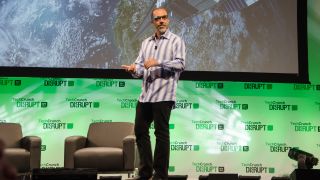
Astro Teller
- Age: 45
- Company: Google X
- Best known for: Google Glass, Driverless Cars, Project Loon
- Quote: "If you're not saying 'no' [to ideas] 99% of the time, you're not trying hard enough. The innovators you're working with have to have very thick skins."
A self-described "builder of magical, audacious ideas that through science and ideas can be brought to reality", Google's Eric 'Astro' Teller is one of the tech industry's less conventional innovators. An expert (and PhD holder) in the field of intelligent technology, he has led Google's semi-secret Google X laboratory since 2010.
Called a "moonshot factory" by the search giant, Google X is tasked with solving critical world problems - or moonshots - such as supplying internet connectivity to developing countries or reducing deaths caused by traffic accidents.
Projects to date have included Google Glass, Google Driverless Car and Google Contact Lens, in addition to Project Loon, the company's mission to provide Internet access to rural and remote areas using high-altitude balloons equipped with wireless connectivity.
The Cambridge, England-born innovator adheres to a strict process for selecting and taking on projects, including encouraging innovation by rewarding failure.
In addition to selecting the right problems to tackle (there must be the scientific or technological means to solve it), Teller and Google X employees are tasked with making something 10 times better, rather than 10% more - a philosophy that led to the Google X name. It should also make a substantial impact in 10 years' time.
An entrepreneur, scientist and author, Teller has created and grown five companies outside of Google X and holds a number of US patents in hardware and software technology.
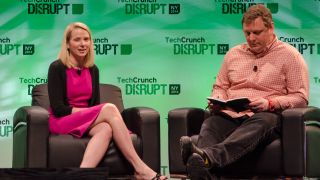
Marissa Mayer
- Age: 40
- Company: Yahoo
- Best known for: Her work on Google's search engine, CEO of Yahoo
- Quote: "Geeks are people who love something so much that all the details matter."
'Can Marissa Mayer save Yahoo?'. That has been the question on many peoples' lips for a while now. When Mayer was appointed CEO and President of the company in 2012, Yahoo was sinking and needed a hero.
Long before joining Yahoo, Mayer actually had ambitions to be a paediatric neurosurgeon, but at Stanford University she changed course to symbolic systems and put much of her focus on artificial intelligence.
After graduating from Stanford she joined Google as its first female engineer where she worked on many of Google's web products, including Search, Images, Maps and News. In fact, the sparse design of Google's search homepage can be partly attributed to Mayer, who oversaw its creation.
Another of Mayer's big wins during her time at Google was the acquisition of restaurant review aggregator Zagat, which became integrated with Google's services.
However in 2012, Mayer became President and CEO of Yahoo, a company that was still stuck in the desktop era and falling into irrelevancy.
Mayer put more focus on mobile and users, creating a new group specifically for mobile products. She also focused heavily on what became known as "MaVeNS" - mobile, video, native apps and social. One of her biggest moves at Yahoo so far has been the acquisition of Tumblr, which Yahoo bought for $1.15bn.
But importantly, Mayer has brought a cultural shift to Yahoo, focusing outwards instead of inwards. Yahoo spent many years having an identity crisis, and in some ways it is still finding where it belongs in this mobile era, but Mayer has helped turn things around for the better.
In fact, in July 2013, more people in the US visited Yahoo sites over the course of the month compared to Google sites. There's still a long way to go, and a lingering question over whether Mayer can turn Yahoo into a massive, thriving entity, but with Mayer at the helm, there's every reason to be optimistic.
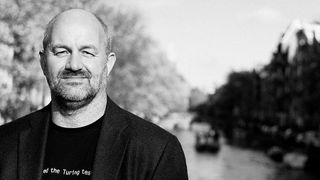
Werner Vogels
- Age: 56
- Company: Amazon
- Best known for: Amazon Web Services
- Quote: "In the fine grained services approach that we use at Amazon, services do not only represent a software structure but also the organizational structure. The services have a strong ownership model, which combined with the small team size is intended to make it very easy to innovate."
Werner Vogels is one of cloud computing's most notable innovators. As the CTO of Amazon Web Services (AWS), he is tasked with driving innovation within the service provider and seeing that it provides scalable, low cost infrastructure that's available to all.
After joining Amazon in September 2004 as the director of Systems Research, the distributed computing expert became Chief Technology Officer in January 2005 and then Vice President in March of that year.
According to research house Gartner, AWS has more than five times the cloud compute capacity in use than its top four competitors combined. And with demand for cheap computing and storage power accelerating as more people use smartphones, tablets and wearables - in addition to Internet of Things devices - ensuring scalability is key.
Vogels is a champion of getting people to work in "two-pizza teams" - ones that are small enough to drive innovation if the groups can feed off limited amounts of food.
In 2013, Amazon CEO Jeff Bezos predicted that Amazon Web Services will eventually overtake the company's retail operation to become Amazon's biggest business. Vogels is the only executive, Bezos aside, who speaks publicly about the company.
Before Amazon, Vogels worked as a researcher at Cornell University, where he led projects that focused on the scalability and robustness of mission-critical enterprise systems. The Dutchman holds a PhD from the Vrije Universities in Amsterdam.
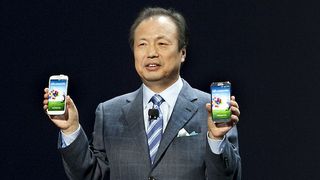
JK Shin
- Age: 59
- Company: Samsung
- Known for: Galaxy range phones and tablets
- Quote: "Our goal was simple, we wanted the most beautiful smartphone in Samsung's history and the most advanced smartphone in the world."
Samsung's range of Galaxy smartphones has, along with the Apple iPhone, transformed the mobile market. And the man in charge of that transformation is JK Shin.
JK Shin has been with Samsung since 1984 and is currently in charge of everything to do with Samsung's Galaxy range of phones - from design to software, as well as being co-CEO of the company.
The Galaxy range has been JK Shin's project from the beginning but it was with the launch of the Samsung Galaxy S II, a completely redesigned version of the Samsung Galaxy S, at Mobile World Congress in 2011, that changed everything for Samsung Mobile. The phone went on to sell over 20 million units. The next year, the Galaxy S3 went on to sell 55 million units.
By 2013, Samsung's held a 26 per cent marketshare in the mobile phone market, selling around 445 million units.
The Galaxy range has continued to expand, with the launch of the Note, Alpha and Edge range, the latter showing off the company's curved OLED technology.
Although Samsung has felt the effects of increased competition in the mobile market, innovation like the S6 Edge will be key to Samsung's success in the market - and this will continue to be driven by JK Shin.
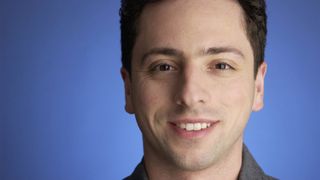
Sergey Brin
- Age: 41
- Known For: Google
- Quote: "Solving big problems is easier than solving little problems."
For many, when you think of the internet you think of Google. And for good reason. The search giant is all-encompassing when it comes to the web. Its search metrics decide what we consume, its other services - including Maps, YouTube and Android - are everyday components of the majority of lives.
Google began at Stanford, when Sergey Brin met Larry Page. The pair authored a paper on the importance of search engines on the web and went on to create the PageRank algorithm that ended up being far superior than anything that was around at the time. In 1996 they created their first search engine, BackRub.
In 1997, Google.com was registered, in 1998 they had their first employee and were working out of a Menlo Park garage. The same year it was voted the top search engine on the internet.
In the near 20 years of Google's existence, Sergey Brin has been at the forefront of many of the company's big ideas.
He currently heads up the special projects department of Google, which is where Brin and co look to changing the world. Some projects that have come out of this camp include Google Loon - where balloons are being used to provide internet - Google Glass and driverless cars.
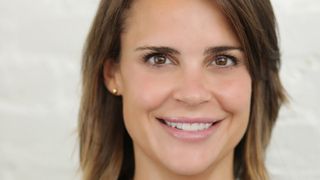
Emily White
- Best known for: Snapchat, Instagram
- Quote: "To have an actual COO role in one of many companies that is disrupting the communications arena is one I could not pass up."
Coming from Instagram, Emily White was an obvious choice to take the role of Chief Operating Officer at Snapchat - but her journey through Silicon Valley began well before then.
White started out by working on emerging businesses at Google under the watchful eye of Sheryl Sandberg. She worked at Google for nine years, but when Sandberg moved on to Facebook she soon brought Emily White with her. There, White worked on mobile advertising.
Soon after Facebook snapped up Instagram, White moved over to be its Director of Business Operations for almost all of 2013.
Late that year, White was picked up by Snapchat where she became its Chief Operating Officer. It was a huge talent grab at a time when Snapchat was growing in popularity at an exponential rate.
White said she could not ignore the opportunity to become a major leader at the company, and she stayed there for over a year, only recently announcing her departure.
What comes next for White? Who knows - but we don't think she'll have a hard time finding a new home.
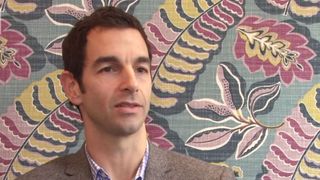
Claude Zellwegger
- Known for: HTC
- Quote: "The Porsche 911 has evolved over a generation. It's incremental. Really, what we focused on, is making things that are already good about the One even better."
Born and raised in Switzerland, a country well known for the art of watch making, it's not a big surprise Claude Zellweger has dedicated his life to the intricacies of design.
Zellweger left Switzerland for the US and spent his younger years earning a degree in industrial design from the Art Centre College of Design in Pasadena.
With that under his belt he went straight into the Silicon Valley working for a number of firms including IDEO and Pentagram Design before heading on to join One & Co and becoming Creative Director in 2001.
There he continues to work on brand and design development with clients such as Sony, Kodak, Nike and Microsoft. One & Co was later bought out by HTC in 2008 allowing the opportunity mould one of the best phone manufacturers around.
It's working for HTC that Zellweger has created some of his best work. He soon joined the creative team within HTC becoming Leader Designer on the HTC brand.
In 2013 he was an integral part of realising and releasing the HTC One brand – one of the most beautiful smartphones we've seen in years, before following it up a year later with the HTC One M8.
Team members Scott Croyle and Jonah Becker, who worked on the HTC One line as well have since left leaving Claude as the sole baton carrier for beautiful design in the HTC One line.
His ethos of simple, yet beautiful design has been an inspiring factor of the company and lead HTC to great success in its flagship line. We've got our fingers crossed he continues his great work at the company to ensure next year's HTC One 10 will be the best looking yet.
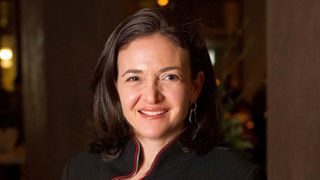
Sheryl Sandberg
- Age: 45
- Known for: Google, Facebook
- Quote: "I want every little girl who's told she's bossy to be told instead that she has leadership skills"
There are few people who can say they've achieved as much as Sheryl Sandberg has. Born in Washington DC, Sandberg went on to graduate from Harvard Business School before taking a job at the US Department of the Treasury during the Clinton administration.
However, Sandberg can probably thank the Republicans for pushing her into the world of tech. After the Democrats were pushed out of office, Sandberg moved to Silicon Valley and joined Google as its VP of Global Online Sales and Operations in 2001, where she stayed for several years.
During her time there, Sandberg made a name for herself as one of America's best executives, so it was undoubtedly a big loss for the company when she jumped ship to Facebook in 2008.
Sandberg actually met Facebook founder Mark Zuckerberg at a Christmas party in 2007, and although Zuckerberg wasn't looking for a Chief Operating Officer at the time, he decided Sandberg was just the right person for the company. She joined as COO in March 2008 and helped Facebook transition into something that was actually profitable. She also went on to become the first female member of Facebook's board of directors.
In fact, Sandberg is also a member of several important boards, including Women for Women International, the Center for Global Development and The Walt Disney Company. She's also spent much of her career calling for better representation of women and wrote the bestselling book Lean In: Women, Work, and the Will to Lead.
But Sandberg also experienced a huge tragedy this year when she lost her husband, Silicon Valley exec Dave Goldberg. Shortly after, Sandberg wrote a long and moving post to Facebook about her loss, evoking an emotional response from the community, drawing over 900,00 positive responses in just one day.
In 2012 Time magazine named Sandberg in its list of the 100 most influential people in the world, and it's obvious why. Not only is she helping to transform a social network into a massive, dominating internet service, she's a force for putting more women in positions of power. To quote Sandberg, "A truly equal world would be one where women ran half our countries and companies and men ran half our homes".

Alex Kipman
- Age: 36
- Company: Microsoft
- Best known for: Kinect, HoloLens
- Quote: "In physics, there are laws you can't bend. But in software, you can bend anything. So nothing is impossible."
Brazilian-born innovator Alex Kipman could be best be described as a creator of fantasies.
Currently technical fellow of Microsoft's Operating Systems Group, he has led the shift away from traditional methods of computer interaction into areas such as motion control and virtual reality.
Kipman was the visionary and software creator behind the Xbox 360's motion-sensing Kinect controller, which translates players' body movements into in-game actions. Successfully bringing full motion gaming to the consumer market for the first time, it sold more than 1 million units in its first 10 days of launch to become the fastest-selling consumer gaming device of all time.
It led to the long-haired, blazer-wearing innovator being recognised as one of the Top 25 Nerds of the Year by TIME magazine in 2011, alongside Steve Jobs, Mark Zuckerberg, Julian Assange and Elon Musk.
Kinect's success was no accident. A Microsoft employee for more than 15 years, Kipman claims to own more than 90 patents, and the mind-bending augmented-reality headset that he is currently evangelising, HoloLens, has the potential to go stratospheric.
A high-definition 3D optical head-mounted display attached to a self-contained Windows 10 computer, HoloLens builds on the promise of Google Glass by allowing the wearer to layer holograms over the physical world using voice and gestures.
Integrating Windows services such as Cortana and speech dictation, it's driven by Windows Holographic - software that Microsoft is positioning as the standard platform for similar VR headsets in the future.
Daring to dream comes naturally to some, but few have made a career out of it quite like Kipman.

Susan Wojcicki
- Age: 46
- Known for: Google, YouTube
- Quote: "Google is fascinating, and the book isn't finished. I'm creating, living, building, and writing those chapters."
It seems that every great technology story starts off in a garage. For Google, that garage belonged to Susan Wojcicki. It was 1998 when Larry Page and Sergei Brin set up office in Wojcicki's garage. At the time she was working as a marketing manager for Intel but by 1999 Wojcicki was working as marketing manager for Google.
One of the first things Wojcicki worked on was a marketing idea that would hopefully take Google viral. The idea was to create a doodle on the Google homepage. It was so successful that it has endured through all the changes Google has gone through and become synonymous with the brand.
From marketing manager, Wojcicki was promoted to senior vice president of Advertising and Commerce. In this role she helped create tools that are used by the majority of companies on the web. The likes of Google Analytics and AdWords were created, so internet companies could evaluate just how well their websites were doing. This tools were also lucrative to Google, with some reports saying that these tools contribute to 96 per cent of Google's profits.
From this Wojcicki changed the way the world views video content. In 2006, Wojcicki was overseeing Google Video and made the request to buy a video startup called YouTube. The site was bought by Google for $1.65 billion and isstill the place for video on the web.
Wojcicki is now CEO of YouTube and firmly established as not just one of the most important people in Google, but the technology world.
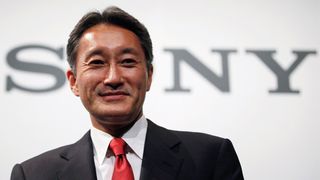
Kazuo Hirai
- Age: 54
- Best known for: Sony
- Quote: "So what does all this mean? Riiiiiidge Raaaceeeerrrrrr!"
When it was announced that Kaz Hirai was going to succeed Howard Stringer as CEO of Sony, there was one group of people that jumped for joy: gamers.
Before he took the Sony top job, Hirai was known for turning Sony into a gaming giant. He joined Sony Computer Entertainment in 1995, when the PlayStation One was still in its infancy, and soon helped make the PlayStation the success it is today, surpassing gaming giants such as Sega and Nintendo.
In 1999 he was made president of Sony's games devision in the US which launched the PlayStation 2 in 2000. The success of the console was helped in part by Hirai's insistence on offering up platform exclusives, in the form of Ratchet And Clank and SOCOM.
It worked. The PlayStation 2 sold over 150 million units, overtaking the PSOne's 100 million and cementing itself as the most popular console of all time.
Hirai continued to oversee the development of the PlayStation and its numerous mobile versions and was seen as a cheerleader of sorts for the games on the consoles - hence his infamous Ridge Racer quote, which saw him championing the game in his usual enthusiastic style - all the way up to 2009, when he was put in charge of Sony's networked products and services.
Although he helped launch (the now defunct) Music Unlimited and Video Unlimited services, this time in his career will always be remembered for 2011's infamous PlayStation hack which put the PlayStation Network offline affecting 45 million customers.
His management of this crisis, where loyal customers were gifted free games and other things, prepared him for his biggest role yet, becoming the CEO of Sony.
When Howard Stringer stepped down in 2012, Hirai took control of Sony. While it is a company still very much in flux, it's CEO has proven time and time again that he can make a success story out of Sony once more.
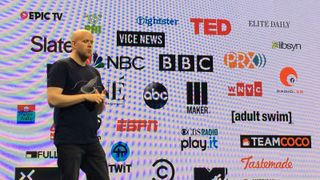
Daniel Ek
- Age: 32
- Company: Spotify
- Best known for: Spotify, music streaming
- Quote: "I'm not an inventor. I just want to make things better."
Daniel Ek isn't just a great innovator – he's a disruptor. Before creating music streaming service Spotify, the Swedish entrepreneur was involved in a number of other big projects that foreshadowed what was to come.
Ek actually founded his first company, a website-building service, at the age of 14. At the age of 23 he became a multimillionaire after selling advertising company Advertigo to TradeDoubler.
However his big idea was for a music streaming service, but getting off the ground was going to be a challenge. In 2006 he became the CEO of file-sharing client uTorrent – a service that's not illegal, but which is often used to share files that are. As this was happening, Ludvig Strigeus, the man who built uTorrent, began building Spotify for Ek, who was soon pitching the idea to music labels.
He told executives that selling CDs was an idea of the past, and that the future lay in streaming over the internet. Ek's belief was that streaming music for free with adverts would work, because people would pay for the convenience of removing them.
Spotify was founded in 2006 by Ek and Martin Lorentzon, but didn't launch until 2008. It wasn't a global rollout, however. The service arrived in the UK in 2009 but didn't hit the United States until 2011. Spotify now has over 60 million users and continues to grow rapidly in size and reach.
Jump to now and it's obvious that Ek was right all along. Ek didn't just build a music platform, he taught the music industry that streaming was in its interest.
Spotify has completely revolutionised the way we listen to music, and has helped ease the problem of piracy eating into this industry.
Entrepreneur. Innovator. Disruptor.
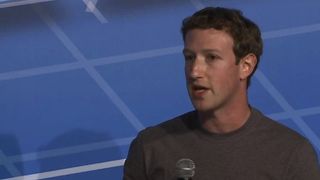
Mark Zuckerberg
- Age: 31
- Best known for: Facebook, internet.org
- Quote: "People don't care about what you say, they care about what you build."
Like it or not, Facebook is now the front page of the internet for many. The site has expanded from its initial premise as a social network to a news channel to a video outlet - and it was all started by a 19-year-old college dropout.
Mark Zuckerberg started Facebook when he was at Harvard University. Taking inspiration from the university's own intranet that listed information about everyone on campus, he set about creating a social network that was to be used within the confines of the university. He and roommate Dustin Moskovitz's site, then called TheFacebook, was such a success that they decided to expand it to other schools.
This lead to Zuckerberg setting up an office in Palo Alto, getting funding from PayPal's Peter Thiel and the turning down of many a buyout from bigger companies.
By 2006, Facebook had dropped its definitive article and was made available to anyone aged 13 and above. By 2008 it had 100 million users - in four years this would expand to over a billion.
Such numbers bring massive profits so it was no surprise that in 2012 the company filed for an IPO which means that Zuckerberg now owns 22%of the site, with the rest run by shareholders.
If that wasn't enough to keep him busy, Zuckerberg is also trying to get more people on to the web - not so they can join Facebook but so they are connected to the world around them.
His internet.org initiative hopes to provide web access to 5 billion people in the world - all those who aren't currently connected. He hopes this will create jobs and enhance the 'knowledge economy'. Given the success of Facebook, if anyone can bring the whole world online it will be him.
Not bad for someone who is just 31.
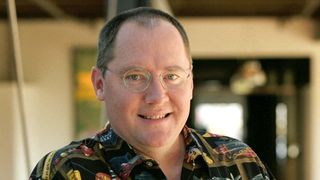
John Lasseter
- Age: 58
- Best known for: Disney, Pixar
- Quote: "It's not the technology that's going to entertain audiences, it's the story."
Like Steve Jobs before him, John Lasseter's career really took off when he was fired. Back in 1984, while working as an animator at the Mouse House, he was pushing to use a new form of animation in the studio's movies - CGI. Not convinced with this new-fangled technology, Lasseter's contract at Disney was duly terminated and he needed to find a new job.
Luckily, Lasseter met some people at Lucasfilm and was soon freelancing for the company, teaching computer scientists about the wonders of animation. By the end of 1984 Lasseter was a full-time employee of Lucasfilm alongside colleagues that would soon form the animation studio Pixar in 1986.
Over the next decade, Pixar transformed from a short-film maestro into a CG feature film heavyweight, creating the world's first feature-length CG movie Toy Story in 1995 and following this up with some of the greatest animations of all time. Oh, and Cars.
As fate would have it, Pixar was bought by Disney in 2006 and Lasseter once again found himself as an employee of the animation giant and overseeing the company's 2D division.
The likes of Bolt, Tangled, Wreck-it-Ralph and the ever-popular Frozen proves there's still life in hand-drawn animation - as long as someone such as John Lasseter is at the helm.

Eric Migicovsky
- Age: 27
- Company: Pebble
- Best known for: Creating the Pebble smartwatch
- Quote: "It turns out people really like using Pebble as a watch. It makes sense. It's been 100 years that people have been putting watches on their wrist. It has to solve that problem."
Before Android Wear, before the Apple Watch - even before the Galaxy Gear - there was the Pebble. The monochrome smartwatch was one of Kickstarter's first big success stories when it ran in 2012.
The man behind the Pebble is Eric Migicovsky - his concept was for a watch that would display messages from a smartphone, and Migicovsky was able to raise a chunk of funding from angel investors. However, with Pebble failing to attract enough traditional investors, Migicovsky pushed it onto crowdfunding site Kickstarter in April 2012.
Pebble was a phenomenal success, reaching its $100,000 goal within two hours of going live on the site. Funding closed on May 18, having raised a phenomenal $10,266,844 - and marking the most successful Kickstarter campaign to date, at the time.
Jump to today and you can appreciate how well-timed Migicovsky's idea was. Smartwatches are popping up everywhere, many packing powerful tech, but Pebble's proposition of a cheap, bare-bones notifications device remains incredibly valid. Battery life on the Pebble is far superior to many of its rivals, while the Pebble Steel proved that a cheap smartwatch didn't have to look like a piece of lego.
But Migicovsky hasn't rested on his laurels: Pebble recently launched its third-generation smartwatch via Kickstarter, as well as announcing a "Smartstraps" platform that will let developers build straps loaded with extra features. Moving back to Kickstarter was a bit of a controversial move for such an established name but Migicovsky said the goal was to reward its most loyal backers.
Whether Pebble will continue on its successful trajectory is uncertain; the smartwatch is all about convenience, it's a device we can live without. But Migicovsky hit the nail on the head with the original Pebble - less is more - and has undoubtedly influenced a large number of the smartwatches on the market right now.
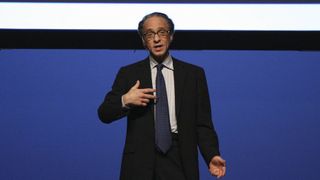
Ray Kurzweil
- Age: 67
- Company: Google
- Best known for: Future tech, AI, singularity, inventions
- Quote: "The power of ideas to transform the world is itself accelerating."
Ray Kurzweil is a futurist – someone who studies the future and predicts where humankind is headed – or rather, perhaps it's better to say that he's the futurist. The one whose words and predictions are clung onto and heard in every corner of the tech industry.
Kurzweil is lauded as one of the most influential thinkers of his generation, and is an inventor who has been called the "rightful heir to Thomas Edison" by Forbes.
His inventions include the first CCD flatbed scanner and omni-font OCR, but he's most famous for his bestselling books such as 'The Singularity Is Near', 'The Age of Spiritual Machines', and 'How to Create a Mind: The Secret of Human Thought Revealed'.
Kurzweil has plenty to say on the subject of AI and the singularity – the point when computers become more intelligent than humans – and believes a machine will pass the Turing Test in 2029.
Furthermore, he thinks that by 2045, machine intelligence will be infinitely more powerful than humankind's combined intellect, and further tech development will be driven by said machines (just call them our robot overlords).
He also predicts nanobots floating around in our blood stream will be a reality in a couple of decades, helping us fight illness – hugely extending our lifespan – and augmenting our cognitive faculties. When he dies, his body will be preserved and stored in the hope of later revival.
Until then, Kurzweil is working at Google as director of engineering, where he's using the firm's vast data mines and resources to produce truly intelligent computers that understand human language on a deep level, in the quest for the perfect clever clogs search engine which really can deliver results (ed: Isn't that Deep Thought?).
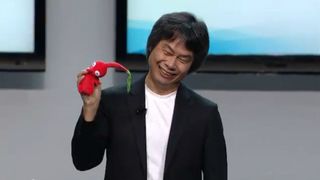
Shigeru Miyamoto
- Age: 62
- Company: Nintendo
- Best known for: Creating some of the biggest, most influential games of all time.
- Quote: "I think that inside every adult is the heart of a child. We just gradually convince ourselves that we have to act more like adults."
Nobody knows the meaning of the word "fun" quite like Nintendo's Shigeru Miyamoto. He joined Nintendo in 1977, just as the company was starting to transition into video games. Miyamoto's first big breakthrough moment was Donkey Kong, a game that was actually inspired by the love triangle dynamic in Popeye. But instead of Bluto, Popeye and Olive Oyl, it was a gorilla (Bluto) a carpenter (Popeye) and a girl (Olive).
In fact, most of Nintendo's biggest franchises can be attributed to "Shiggy" Miyamoto, including Mario, The Legend of Zelda, Star Fox and F-Zero.
One of Miyamoto's more recent moments of significance was the creation of the Wii. Miyamoto played a big role in the creation of Nintendo's "Project Revolution", which ended up living up to its codename. The Wii made motion gaming mainstream and turned out to be a massive success, despite lacking the graphical grunt of its two arch rivals, the PS3 and the Xbox 360.
Miyamoto's success undoubtedly stems from his philosophy: if a game is fun for him, others will find it enjoyable too. His focus isn't on the graphics but the mechanics and the gameplay - and he hates cutscenes. In 1999 he said: "I will never make movie-like games".
Miyamoto's is still Nintendo's greatest asset, and he continues to work on titles for both the Wii U and the 3DS - showing no signs of stopping. Games have been his life, and Miyamoto has earned his place at the top of the podium by never letting anyone or anything stand between him and his philosophy.
"Video games are bad for you? That's what they said about rock-n-roll."
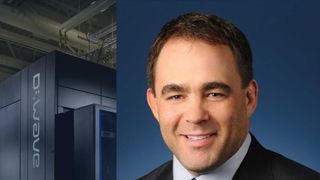
Dr Geordie Rose
- Company: D-Wave
- Best known for: Quantum Computing
- Quote: "Our role in bringing quantum computers kicking and screaming into the world is to, well, build quantum computers."
In a list of great tech innovators you are likely to see plenty of familiar names, and even more familiar companies, but Dr Geordie Rose and D-Wave may well not be all that recognisable to those not focused on his particular field.
Rose, who founded D-Wave and serves as CTO, is one of the leading lights in the exciting, confusing, and often controversial world of quantum computing.
A quantum computer solves problems in a fraction of the time that a linear computer would take, and this could have huge benefits in a whole host of areas including artificial intelligence.
D-Wave released what is claimed to be the first world's first commercially available quantum computer, and although this in itself has courted more controversy, few would argue that Rose's pursuit of quantum computing represents a potential transformational area of technology.
Rose holds a PhD in theoretical physics and is a regular lecturer on his specialist field, as well as being a passionate advocate for the potential of quantum computing.
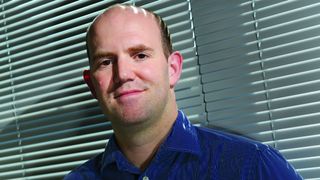
Eben Upton
- Age: 37
- Company: Raspberry Pi (Trading) Limited
- Best known for: Hardware
- Quote: "The whole story for Raspberry Pi is what we can squeeze in there? Can we squeeze something interesting enough that it will become a part of a child's life?"
Strapped to a helium balloon, the Raspberry Pi micro-computer soared 40km above the Earth in 2012, transmitting live images throughout the flight.
It's an apt metaphor for the runaway success of the bare-bones computer, which has gone on to sell 5 million units since being devised by Raspberry Pi Founder Eben Upton and a team of computer scientists at the University of Cambridge in 2006.
While working as the Director of Studies in Computer Science at St John's College, University of Cambridge in 2005, Upton and his team became concerned about the declining skill levels and number of applicants wanting to read Computer Science at the university.
Where children who grew up in the late 80s had acquired basic skills to code using machines from that era such as the Amiga, BBC Micro, Spectrum ZX and Commodore 64, the games consoles that followed had seemingly steered the following generation away from learning programming.
Upton, a chip architect at Broadcom by day, saw the declining cost of mobile devices and identified an opportunity to create a small, affordable credit-card sized computer with the multimedia capabilities to make it attractive to young would-be programmers.
As the driving force behind the Raspberry Pi, Upton has championed the micro-computer as a means to not only improve young people's computer science skills, but also those in STEM (Science, Technology, Engineering and Maths) subjects.
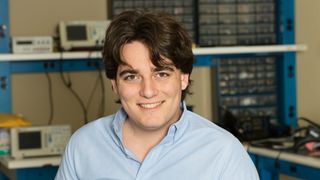
Palmer Luckey
- Age: 22
- Company: Oculus VR
- Best known for: Creating the Oculus Rift
- Quote: "Our goal is to promote the long-term adoption of virtual reality, not the short-term financial returns."
It's difficult to not be envious of Palmer Luckey. At just 22 years old, the guy has already brought virtual reality back from the dead and founded a company so important that Facebook decided it just had to own it. Luckey created the Oculus Rift, a product whose name has already become synonymous with the new wave of virtual reality.
Unimpressed with the head mounted displays available at the time, Luckey was driven to create a better virtual reality experience. After a period of odd jobs that helped fund his collection of dated virtual reality equipment, Luckey built his first VR prototype at age 18
However, it wasn't until the sixth generation of the headset that it was christened the "Rift". Soon after that, Luckey founded Oculus VR and, with interest from id Software's John Carmack and the endorsement of Valve boss Gabe Newell, dropped out of university to pursue his VR dream. Luckey had turned to crowdfunding for earlier headset prototypes, but this time the Oculus Rift was more fully formed. The Kickstarter was an astounding success, achieving 974% of its target and raising $2.5m.
Just one year after being founded, Oculus VR had raised $91m in venture capital - there was no stopping the Rift at this point. But what really secured the future of Oculus, and possibly virtual reality itself, was Facebook.
In March 2014, Facebook announced it would buy the company for $2 billion, and just over a year later the two confirmed that the Oculus Rift will arrive in early 2016.
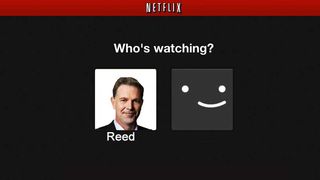
Reed Hastings
- Age: 54
- Company: Netflix
- Best known for: Netflix, media streaming
- Quote: "Most entrepreneurial ideas will sound crazy, stupid and uneconomic, and then they'll turn out to be right."
From a company that posted you DVDs, Netflix has become a media giant producing some of the finest television on the planet, and a real trailblazer in changing how we consume our television. CEO Reed Hastings has been a key part in this.
With the admiral stand of putting Netflix on every available platform, putting the user's needs above any rivalry, Hastings has made Netflix a powerful figure in the transformation of television.
A director of Facebook on top of his day job, Hastings' managerial ideas have also been influential in the tech sector - with a focus on rewarding excellence with high wages and high severance packages to those deemed not up to speed at the company.
But it is in our changing TV consumption habits where Hastings is perhaps at his most innovative. Paying for exclusive TV content seemed high risk until the likes of Orange is the New Black, Better Call Saul and Daredevil became critical darlings and a primary reason to subscribe.
'Content is king' is a famous mantra, but Hastings - as much as anyone - made it clear that actually content may be king, but accessibility is the ace in the hole, and it is difficult to see a future path for our entertainment that doesn't include - in some form - the Netflix model.

Hossein Yassaie
- Age: 57
- Company: Imagination Technologies
- Best known for: Hardware, graphics
- Quote: "I believe in and hope for making a real difference. I consider ignorance the biggest danger to the human race's progress."
Hossein Yassaie is CEO of Imagination Technologies, and he has been head of the graphics company for quite some time – since 1998, in fact.
Born in Iran, he became a UK national at the age of eight, and studied at Birmingham University where he got his PhD and became a Research Fellow. His first steps into the tech industry saw him work at STMicroelectronics and Inmos for the best part of a decade, where he was in charge of digital video and DSP, before he moved to Imagination Technologies in 1992 as CTO.
The UK-based graphics giant has seen much success during his tenure as chief exec, and its PowerVR mobile GPUs are used by many of the world's leading device manufacturers, including Apple, Sony, Samsung and LG.
Yassaie also kicked off the firm's Pure division when he saw a gap in the digital radio market, and while the initial intention might not have been to shift products to consumers – the first radio was really meant as a demo platform for Pure's DAB chip – success quickly led to a range of DAB radios (like the Evoke), portable wireless speakers, iPhone docks and the like.
Under Yassaie Imagination Technologies is also firmly angling itself towards the Internet of Things market, with its MIPS processors boasting high levels of performance efficiency, and Ensigma IP solutions for radio comms slotting in neatly with the frugal power requirements of wearables and IoT-connected hardware.
Yassaie is clearly a driven man and in interviews has lamented the fact that Britain no longer has enough giant tech firms like Imagination Technologies and ARM – and we need to get back to grass roots and innovate to breed further success, something Imagination isn't afraid to do.
He was also given a knighthood back in 2013 for his services to the tech world.
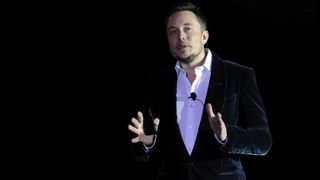
Elon Musk
- Age: 43
- Company: SpaceX, Tesla
- Best known for: online payments, electric cars, rockets, travel
- Quote: "Failure is an option here. If things are not failing, you are not innovating enough."
His Twitter profile may be a playful send up of James Bond's arch nemesis Blofeld, but Elon Musk's billions have thankfully been put to making the world a better place rather than destroying it.
That's not to say that some of his endeavours aren't ripped straight from Ian Fleming's books. His myriad companies are currently tackling space exploration, super-speed travel and new energy resources - and that's all while he is revolutionising travel with Tesla.
His career began with the founding of web software company Zip2 which was sold for $307 million in 1999. After this he co-founded a payment service called X.com, which merged with a little known transfer service called Paypal. Three years later that company was bought by eBay for a cool $1.5 billion.
The money made from this buyout helped found Musk's third company SpaceX, which is now the largest independent producer of rocket motors in (and out of) the world. The Falcon spacecraft and its bedfellows are helping democratise space exploration, while also helping the likes of NASA further its cause.
If that wasn't enough to keep Musk busy, he is also the co-founder of Tesla Motors, a company revolutionising the electric car with its Model S range and has gone on to propose a new form of transportation in the guise of the Hyperloop. If this new form of 'air travel' works - and it's a big if - it will drastically cut commuting times from LA to San Francisco in the US.
His latest venture is the Powerwall battery, something Musk is hoping will be what powers homes in the future.
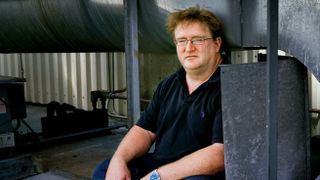
Gabe Newell
- Age: 52
- Company: Valve
- Best known for: PC gaming, Half Life, Steam, Steam Machine
- Quote: "I'm not sure we're all going to put down our game controllers and pick up touch screens - which is a reasonable view, I'm just not sure I buy into it."
In terms of gaming on the PC, Gabe Newell can lay claim to being one of the most influential figures of the 21st century, but his influence in tech is creeping beyond the traditional Windows platforms into consoles and other hardware.
A 52-year-old former Microsoft man, newell made his first fortune in Redmond, but made himself a billionaire by taking the risk of leaving the software giant to set up Valve with Mike Harrington and work on Half-Life, one of the greatest games of all time.
Newell and Valve's ambition extended beyond just making great games however, and the launch of Half Life 2 on the company's proprietary Source engine, allowed Valve to push through a PC game digital distribution and delivery system called Steam, which quickly became ubiquitous and then a store front for the PC as Microsoft turned their attention to Xbox.
Now, Valve is using Steam at the heart of its plan for the next era of gaming with Steam Machines and, yet, it is Newell's first party games that will perhaps define success or failure of that platform and also others (like VR).
And yes - we are talking about Half Life 3.
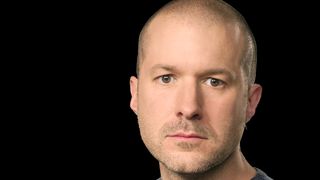
Sir Jony Ive
- Age: 48
- Company: Apple
- Best known for: iMac, iPod, iPhone, iPad, Apple Watch
- Quote: ""Very often design is the most immediate way of defining what products become in people's minds."
In a list of current tech innovators it's hard to overstate the importance of Apple's British designer Sir Jony Ive.
There are plenty of brilliant and talented engineers in Cupertino that disprove any mutterings about a lack of innovation in Apple, but it is perhaps Ive's insistence on a marriage between function and form that remains key to making big new products not only sell like hot cakes, but exert such an influence across the tech world.
From the smartwatch sector to his greatest hits - the iPhone, the iPad and theiPod - the 48-year-old Ive has played a huge role in moving our tech lives from beige boxes to sleek and sexy designs.
Ive started his career in Hoxton Square at a design company called Tangerine, but after being courted for years by Apple was brought over to work on projects like the second gen Apple Newton.
It was the iMac that began to bring the attention that Ive deserved, and after Steve Jobs' sad death, the Chingford-born designer's influence at Apple remains critical in all of its future projects.
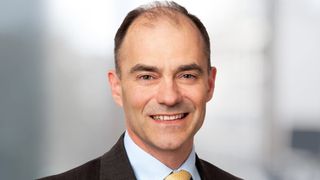
Warren East
- Age: 53
- Company: ARM
- Best known for: Hardware, software
- Quote: "It has been a privilege to lead ARM during such a momentous and exciting time for our industry."
Warren East was the Chief Executive Officer of ARM, the UK-based semiconductor and software design juggernaut with a global presence, for almost 12 years.
ARM was founded in 1990, and Oxford University educated East (he studied engineering sciences there) joined the company four years later to kick off the firm's consulting business, before swiftly becoming vice president of business operations, and then Chief Operating Officer in 1997. He was promoted to CEO in October 2001, and stepped down in July 2013 (succeeded by the then president of ARM Simon Segars).
When East first took the chief executive position, ARM had just one processor line for mobile phones (mostly), and he directed the firm on a vast expansion to become a leading tech sector player, with the result that in his final year, the company served some 300 semiconductor customers across almost nine billion chips. And under his decade plus of leadership, the organisation scooped royalties on over 40 billion ARM-based chips.
East is a Fellow of the Institution of Engineering and Technology, Fellow of the Royal Academy of Engineering, and was awarded a CBE in 2014 for his work in the tech industry.
East became a non-executive director of Rolls-Royce in January 2014, and recently announced he's to become CEO of the company in July of this year. Currently, he's still a non-executive director of BT, Dyson and Micron Inc. among other companies, though he'll be leaving all but one of those positions when he becomes chief exec of Rolls-Royce (as that's company policy).
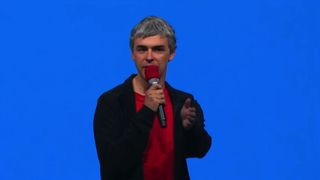
Larry Page
- Age: 42
- Company: Google
- Best known for: Search, automotive, hardware, software, space travel, health, wearable tech, internet of things
- Quote: "Especially in technology, we need revolutionary change, not incremental change."
It's hard to remember a time when the web didn't have the might of Google to shepherd people to various sites, but it took a stroke of genius from Larry Page and Sergei Brin to completely change the modern computer age.
Not content with developing an algorithm that allowed the internet to be properly categorised and make finding information on the web exponentially more simple, Page has gone on to lead Google (for a second time) as it steps firmly into brave new worlds in hardware and more.
Page, as CEO of Google, has a finger in some of the most important tech pies ever, including autonomous cars, space travel (he sits on the SpaceX board), the internet of things, wearable technology, as well as health and energy and of course the might of Android and the web.
Page famously runs every new Google product through a toothbrush test: 'Is it something you use daily and makes your life better?' and insists on every new arrival being ten times better than its rivals (often called his 10X mentality).
But above all, Page remains an innovator, desperately seeking the next big thing and never happy until he feels he is driving towards it.
The TechRadar hive mind. The Megazord. The Voltron. When our powers combine, we become 'TECHRADAR STAFF'. You'll usually see this author name when the entire team has collaborated on a project or an article, whether that's a run-down ranking of our favorite Marvel films, or a round-up of all the coolest things we've collectively seen at annual tech shows like CES and MWC. We are one.
Most Popular
